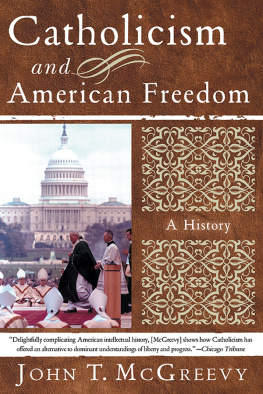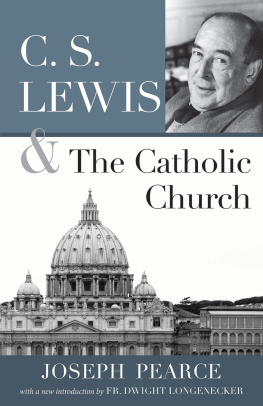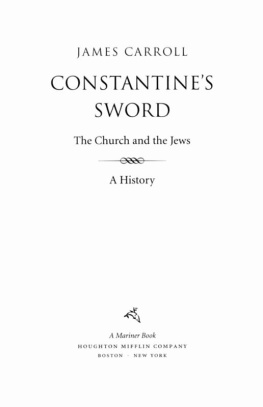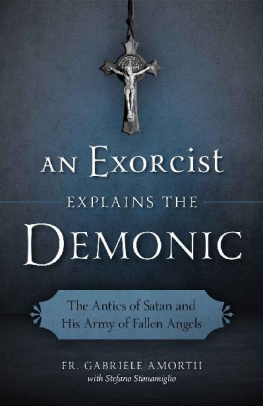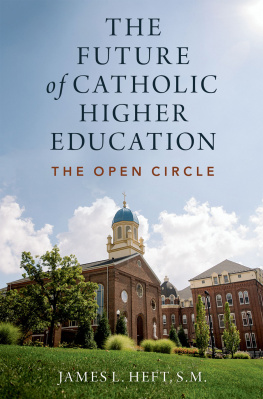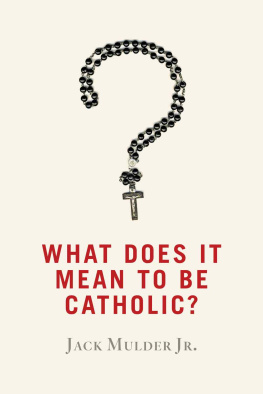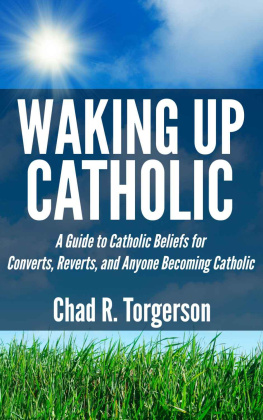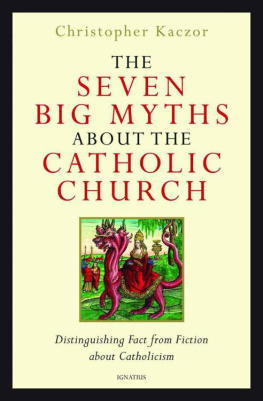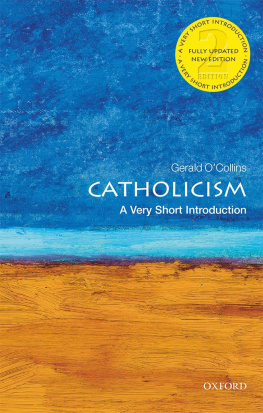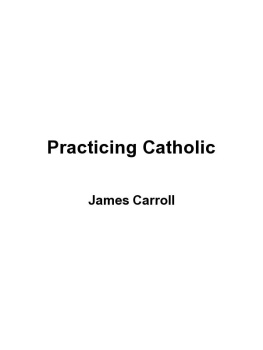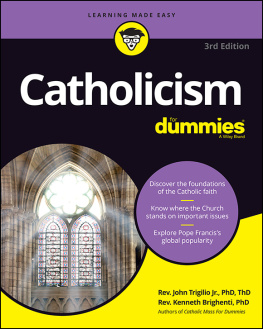
CATHOLICISM AND
AMERICAN FREEDOM
A History
JOHN T. MCGREEVY
W. W. NORTON & COMPANY
NEW YORK LONDON
CONTENTS
I
O n Monday morning, March 7, 1859, the instructor Sophia Shepard began the new week at Bostons Eliot School by asking ten-year-old Thomas Whall to recite the Ten Commandments. Beginning the school day by reading Scripture and reciting the Ten Commandments was customary, indeed required by law, at all Massachusetts public, or common, schools. More unusual was Miss Shepards insistence that Whall and the other boys in her classroom individually recite the Protestant, or King James, Bible version of the commandments. Typically, the Catholic students would mutter a different version of the commandmentsavoiding the Protestant second commandment, which cautioned against the worship of any graven imageand the substitution would be lost in the general din.1
On this day Whall refused Miss Shepards request. His father, young Thomas announced, had insisted that he refuse to recite the Protestant version of the commandments. During a series of meetings over the next three days, Whall, Whalls father, the principal, and members of the school committee tried to resolve the matter. The principal hinted that differences between Catholic and Protestant versions of the commandments did not trouble him, but a local school committee member, Micah Dyer, once a supporter of Bostons anti-Catholic Know-Nothing Party, insisted on adherence to the letter of the law.2
Thomas Whalls family attended St. Marys Church in Bostons North End. There Thomas listened to the Jesuit Father Bernardine Wiget urge the several hundred boys in the Sunday school not to recite any Protestant prayers, so as to be saved from infidelity and heresy. At a subsequent meeting parishioners passed twenty resolutions, including one recommending that the children should be taught not to be ashamed, but to be proud of their holy religion, and, therefore, to bless themselves whenever they should be called upon to recite prayers, and at that time to recite their own Catholic prayers.3 Wiget also threatened, apparently, to read from the altar the name of any boy who agreed to recite the Protestant version of the commandments in the Eliot School.4
The next day, Monday, a week after the first incident, Miss Shepard again asked Whall to recite the commandments from the King James Bible. He again refused. This time an assistant to the principal, McLaurin F. Cooke, stepped into the classroom and informed the class, Heres a boy that refuses to repeat the Ten Commandments, and I will whip him till he yields if it takes the whole forenoon. And so Cooke did, beating Whalls hands with a rattan stick for half an hour until they were cut and bleeding. During breaks in the beating, other boys yelled at Thomas not to give in. One account suggests Thomas fainted.
The school principal then ordered all boys not willing to recite the Ten Commandments in the King James version to leave the school, and about one hundred Catholic boys were discharged. On Tuesday three hundred boys were discharged for the same offense. On the following Monday the Catholic boys brought copies of the Catholic commandments to school, but they were again discharged. Some boys took to ripping the Protestant Ten Commandments out of their readers.
Whall and his father sued Assistant Principal Cooke for use of excessive force. Cookes attorney used the trial to ask, Who is this priest who comes here from a foreign land to instruct us in our laws? He added that the real objection is to the Bible itself, for, while that is read daily in our schools, America can never be Catholic.5 The courts ruling, handed down by Judge Sebeus Maine, vindicated Cooke, arguing that Bible reading without comment is no interference with religious liberty. Whalls refusal to recite the Protestant version of the Ten Commandments threatened the stability of the public school, the granite foundation on which our republican form of government rests.6
Comment about the caseimmediately dubbed the Eliot School Rebelliondominated the local newspapers, and reports spread across the nation. Young Whall, a victim of inhuman torture, began receiving tributes from Catholic parishes and schools around the country: a goblet from the Cathedral schools of Covington, Kentucky, and gold medals from Nativity in New York City and St. Marys in Alexandria, Virginia.7
Non-Catholic reaction was divided. Major national papers such as the New York Tribune criticized school authorities for creating a religious martyr, and the Boston Daily Advertiser flatly termed Whalls punishment intrinsically wrong and unjust. The Boston Weekly Messenger more cautiously viewed the situation as perplexing and delicate.8
The Boston Daily Atlas and Bee, on the other hand, the citys most important Republican Party newspaper, concluded, We are unalterably, sternly opposed to the encroachments of political and social Romanism, as well as to its wretched superstition, intolerance, bigotry and mean despotismas much so as we are to the monster institution of human slavery and for the same reasons.9 Amos A. Lawrence, a prominent Boston businessman and a leading supporter of the abolitionist John Brown, noted trouble with the Catholics in the Boston schools in his diary. Father Wiget, he continued, (an ignorant or bigoted priest, or both) forbids his Sunday School scholars to repeat the 10 commandments in school in the usual form, also the Lords prayer. If Protestant Christianity is to be abandoned in our public educational system, we shall convert the schools of the Puritans into heathen temples, or what is next to that.10
A number of Boston ministers addressed the topic, and most condemned Catholic aggression. One minister warned his congregation that Wiget was a Jesuit of the ultra-Roman stamp. Another reissued an anti-Catholic polemic he had written four years previously, noting its relevance in a city where a single foreign priest has introduced anarchy into one of our public schools.11
Reverend Arthur Buckminster Fuller, pastor of a Unitarian church near St. Marys, began by recommending that the general and common doctrines of Christianity not be banished from the common schools. Fuller had run for local office on the Republican ticket in 1857, and he continued his sermon, intriguingly, with an emphasis on slavery, what as a candidate he had once called the sum of all villainies.12 On these western shores, too, he said, in our own land, Romanism allies itself with every false and anti-republican institution which is yet tolerated in our glorious country. Intemperance and slavery would quickly be overcome if Romanism ceased to exert her influence to uphold them both. Should Catholics achieve political power in the United States, Fuller concluded, [o]ur national government, now so fearfully subservient to the shameful slave power, would then be no less under the dominion of a standing army of priests and friars.13
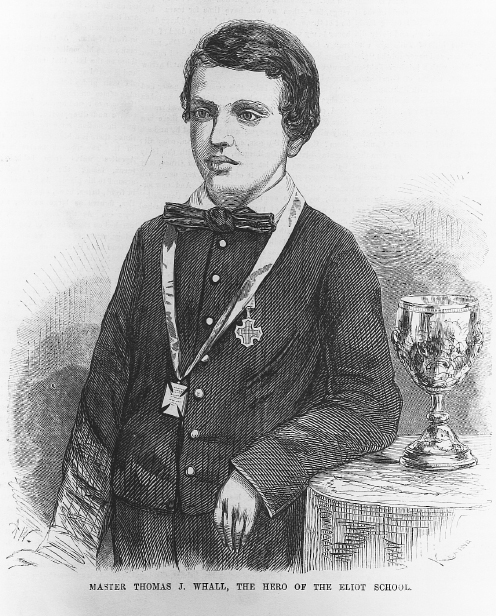
Thomas Whall, hero of the Eliot School Rebellion, from the Irish Illustrated Nation of April 30, 1859. Whall is wearing medals sent to him by admiring Catholics across the country, and standing next to a goblet sent by Catholics in Covington, Kentucky. The inscription on the goblet pays tribute to the Filial Piety, manly Fortitude and Heroic Faith Under Torture at the Eliot School, Boston, March 14, 1859.
II
Reverend Fullers fears were not simply religious bigotry. True, Protestant migrants to the British North American colonies had nurtured a powerful anti-Catholicism since the seventeenth century. When William Brewster sailed for the New World on the
Next page
